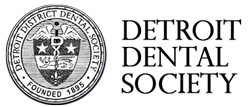Gregory Szalai, D.D.S.
Joanne Szalai, D.D.S.
“Gum disease may even affect your unborn child. Pregnant women with periodontitis are much more likely to give birth to premature babies than women with healthy gums are.”
Source: MayoClinic.com
The test is back and it’s clear—you’re expecting a baby! You know the rules, see your healthcare provider, eat right, take your vitamins, don’t smoke, and don’t use drugs. Now there is one more commitment to add your list. See your dentist and dental hygienist and follow their recommendations for eliminating any gum infection (periodontal disease) that is diagnosed.
Recent research has clearly linked the presence of gum infection to a significantly elevated risk for having a low birth weight /premature birth—in other words, a baby who is born too small and too soon. This constitutes one of the most dangerous risks for your unborn child. In fact over half the neurological disabilities affecting children are related to problems associated with premature birth. The American Dental Hygienists Association offers vital information on this serious health problem for our youngest and most vulnerable children.
American Dental Hygienists Association Fact Sheet on Premature Birth
- Women with periodontal disease are at three to five times greater risk of preterm birth than those who are periodontally healthy.
- Premature (or preterm) babies are born too soon—before 37 completed weeks of gestation.
- In 2001, the preterm birth rate was 11.9%, reflecting more than 476,000 newborns and the highest rate ever reported for the U.S. This represents 1 in 8 babies in the U.S. born prematurely.
- The rate of preterm birth increased 27% between 1981 and 2001 from 9.4% to 11.9%.
- On an average day in the U.S., 1,305 babies are born preterm (before 37 weeks), 213 are born very preterm (before 32 weeks).
- Among racial/ethnic subgroups, preterm birth rates were highest among infants born to black mothers (17.5%) in 2001.
- Major risk factors associated with increasing rates of preterm delivery include multiple births, advanced maternal age, induced deliveries and additional factors as yet unknown.
- Preterm labor/delivery is the number one obstetrical challenge in the U.S.
- In 2000 prematurity/low birth weight was the leading cause of neonatal mortality in the U.S., accounting for 23% of deaths in the first month of life.
- Preterm birth is a leading challenge in pediatrics, accounting for substantial long-term disabilities such as mental retardation, cerebral palsy, vision and hearing problems, and chronic lung disease.
- Causes of nearly half of all preterm births are unknown.
- Preterm labor can happen to any pregnant woman.
As dental health professionals we encourage all expectant mothers to have a comprehensive exam including a periodontal evaluation. If you are experiencing bleeding, inflammation (swelling), odor, bad taste or loose and shifting teeth you may be living with a silent infection that will place your baby at risk for being born before he or she is ready. The good news is that if treatment is needed it is often relatively simple, non-invasive and effective. Talk to your dental health professional and learn the facts. Your baby is precious and a healthy beginning to life is the best gift a parent can give. Helpful resources are available on the following websites:
Drs. Gregory and Joanne Szalai practice at the Center for Cosmetic Dentistry located at 5329 Allen Road, Allen Park, MI 48101.
They can be contacted 313-928-2323, or by email at info@yourbestsmile.com.








